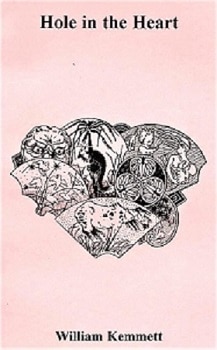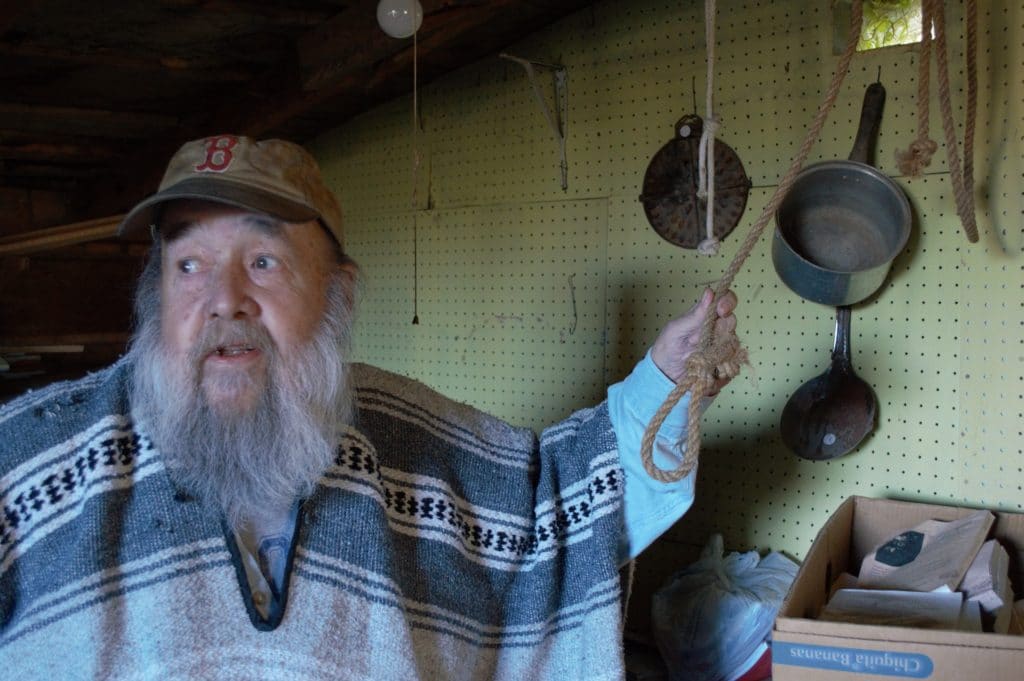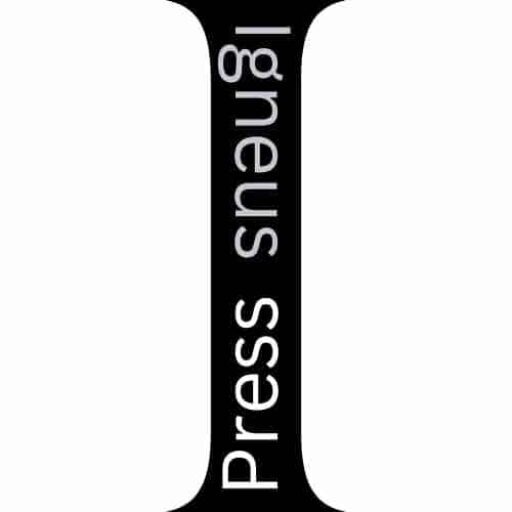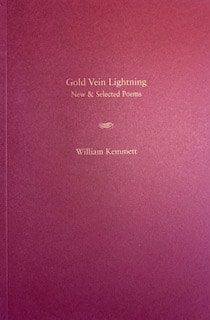
William Kemmett, Hole in the Heart (1st Edition) English (Buy this book)
Review by deb Ewing
I feel a trend in literary publication as the capitalist world strives to honor diversity: Tell us your story, they say; We want to know what it’s like to be Brown, to be Transgender, to be Marginalized. That with a capital M – Marginalized. But isn’t asking for what lies outside the margin in fact reinforcing the existence of what has been exclusionary until now?
We have enough power to ask about you, they say, in this nonwhite light. That’s how it feels to me, a white woman. Please explain clearly, to make sure we get it. No. That’s not how poetry does. Pay attention to the things not said.
Poets have always been outliers. They weave stories that can’t be told in a fairytale or parable. Poetry either enforces rigorous parameters, like sonnets, or openly defies them, like free verse. Poetry is digging something out of your heart before it chokes you. And, very often, that choking comes from a society that will not accept you as you are.
Just be normal, they say.
Normal has, for all of the United States’ history, been the perspective of White Patriarchal Male. And in the normal way of white men, we seek to rectify the disparity by taking charge, grabbing the bull by the horns, snatching up what’s been pushed aside and setting it in the middle of the table in plain view.
We fixed it, they’ll say. But it won’t be fixed.
The missing piece to this faulty equation is that life for the Other has been happening all along. Pulling out a shiny piece and slapping on an award is a momentary distraction. Human beings outside the margin were living real lives before the focus shifted, and continue to do so. Even poets.
William Kemmett’s picture is on the back of Hole in the Heart. He looks like a normal white guy. He tells tiny snapshots of the seaside, of fathers with sons away at war. He imagines the story of a gull with half a wing missing who tries to keep up with the flock. Turtles laying their eggs in the sand, because that’s what life asks of them. A cricket calling for her mate, empty webs enjambed, a dewdrop, a leaf. Is it the privilege of a white man to have time for these thoughts, to write them down? Surely not.
Once you get past the stories of how it feels to be brown, or transgender, or marginalized — from the perspective of not being white — and if you haven’t lost interest, if you’ve been authentic, you may get to hear the real stories. Loss of more than identity in a fractured society. Reconnection to the earth mother by obsessing over birds or ants. Deep-diving into science, looking for roots.
A multiracial bisexual falls in love with the wrong person and knows what a hole in the heart feels like. Living by the coast is not a shape or color. Two women in love go to a different church because they also love God. A white man sometimes contemplates his whiteness.
I read Hole in the Heart for the first time when I came home from a trip to Canyon, Texas; Peter Kidd gave me that book. The bite-size worlds were perfect for digesting between work duties, when I wanted to escape my office cube to somewhere else. I kept it on my desk through the busy season, even referenced it in one of my pieces, ‘A Murmuration’:
Hole in the Heart
– from A Murmuration, debora Ewing
lies on my desk
like a noose in my trunk

The language is clean and precise – I draw each picture in my mind, smell the air, feel the feathers – and easily transition back into my day. Many of William Kemmett’s poems end in departure, stepping off printed word toward something undefined. That’s how living feels to me.
I am not a white man, but I could insert myself, map those narratives over the life I was living. I get the feeling that William Kemmett also plays with inserting himself in his poems, as an outsider. He writes about entities who come into contact with the walls of privilege and yet persist: In ‘Petition from Purgatory’, he writes from the perspective of something bound, in the line of fire, and a monk ascending a staircase. He sets up the conflict and backs out, leaving us to examine where exactly we stand.
In his piece ‘Five Reasons’, Kemmett seems to enumerate privilege. ‘Three in a Row’ has only three stanzas, wry examination of his childhood…or is it? Is he calling White Patriarchy what it is? He draws a picture of a boastful white man — we know he’s white because he isn’t labeled — in ‘Narrowback Talking to the Indians’:
“They buy me a drink, and toast to my brave heart.”
That’s how the piece ends. But can you hear the tone of voice? Read it again, and see. Feel for it. You wonder if, by the time that man gets home, the message has sunk in.
Have we become too accustomed to having things labeled for us? Why do we need people who aren’t like us to define their humanity? If we do, then I think poetry is a good teacher…maybe even a healer. Hole in the Heart is a tribute to the missing piece, to the words not said, maybe leaking out the hole.
Poetry isn’t a popularity contest, but a way to stop the bleeding…and we all bleed. But there’s a lot of catching up to do while those of us who have been comfortable with normal learn to see those of us who haven’t. You have to open your heart – to what can fill the hole.
the door to my cage is open
– from A Murmuration, debora Ewing
and I approach
in due time…
Necklace by songwriter Sandy Reay. See her work at HerArt Design
debora Ewing blogs about art, creativity, and social philosophy at #uncoffeed…. See more and support her at Patreon.com/debnation

